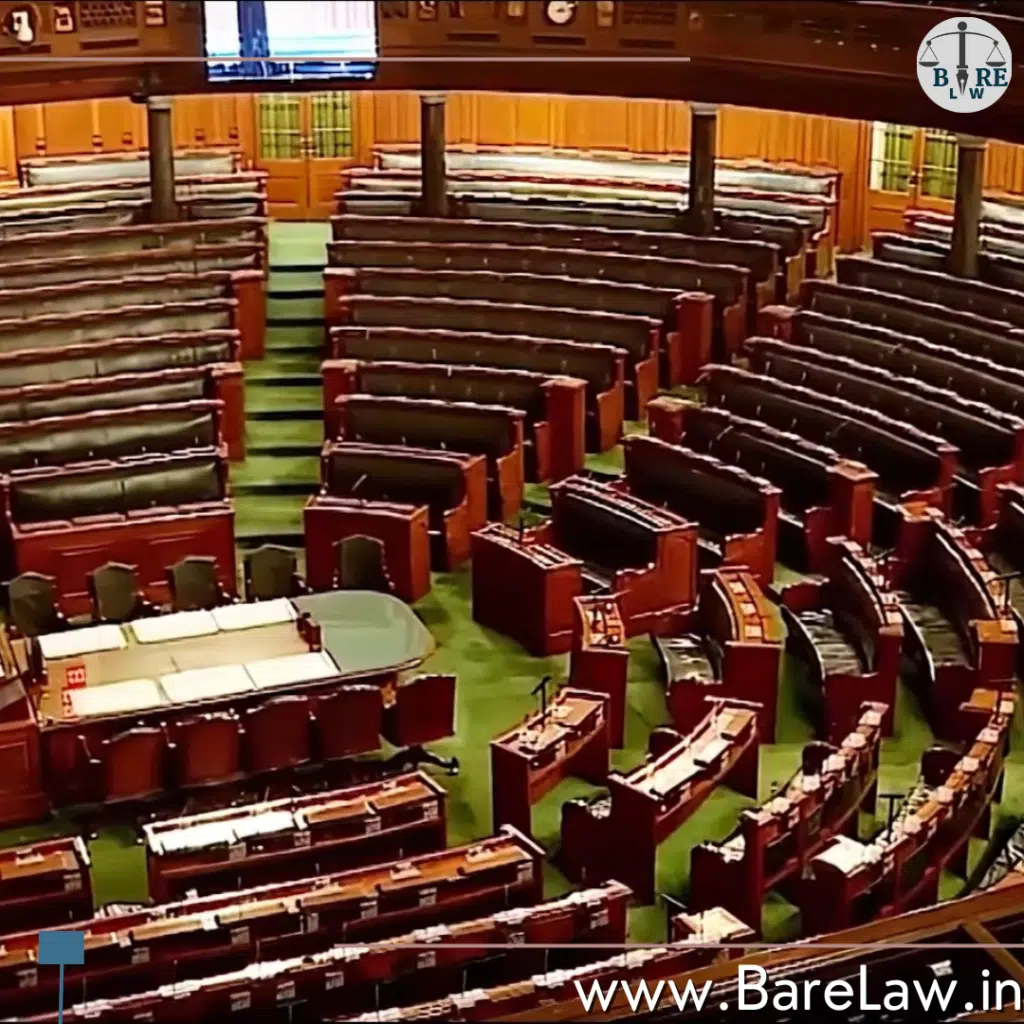
One of the most important features that the Indian constitution has when compared with the others, is the feature of constitutionalism. Do you think mere presence of the constitution, either written or unwritten, shall make a country with the feature of constitutionalism?. The term constitutionalism, in normal words, would mean that there is a presence of certain limitations on the powers of the elected government. In the case of India, it is the restrictions or the limitations that are imposed on the powers of the parliament. One of the examples in the Indian constitution with the feature of constitutionalism is the presence of judiciary and their power under article 137, to review the legislations of the parliament or any scheme for that matter. So, an independent judiciary plays a key role and is one of the key features which will ensure that powers of the parliament are not arbitrarily exercised. In this manner, this article will briefly be looking into the recent Bill that was introduced in the parliament called National Judicial Commission Bill of 2022 during the winter session in December 2022 that attracted much criticism from the side of activists and even the opposite parties in the country.
Key Features of the Bill of 2022:
The following are the objectives behind the introduction of the bill as mentioned in the preamble of the Bill of 2022. They are,
- To regulate the procedure followed by the Judicial commission for the purpose of recommendation of any person for the appointment as Justices of the Supreme Court and High Courts, including the Chief Justices of the same.
- It also lays down the procedure for the transfers and also the removals
- It ensures that there are certain judicial standards in place and the judges are accountable for their acts
- Mainly it provides for the procedure that needs to be followed by the commission in cases of investigation into the complaints made before them against the conduct of the judges of the courts of law.
Precursors to the bill of 2022 and the Supreme Court of India
It is very crucial to note that Prayer to the introduction of the 2022 Bill in the Parliament of India, was a precursor to the same which was brought before the parliament in the year 2014. This particular act was called the national judicial appointments Commission act of 2014 and it was brought into action by the parliament through an amendment which is the 99 to Constitutional Amendment Act of 2014. The main objective of this 2014 act is to create and constitute a separate and an independent Commission for the act of appointment of judges to the Supreme Court of India and also high courts. This was considered as a replacement to the existing collision system in India. and fortunately this particular at was challenged before the Supreme Court of India in the year 2015 on the ground that it violets the independent judiciary which is nothing but one of the basic features of the Indian Constitution as provided by the apex court itself in the famous case of Kesavananda Bharati v. state of Kerala. This 2014 act was declared to be unconstitutional because of it being violative of the basic structure of the Indian Constitution which is nothing but the independent judicial system.
It is also pertinent to know the difference between the working of national judicial appointments Commission versus the working of Collegium system in India. When it comes to the national judicial appointments Commission, it will be governed by a statute and the executive will play a major role in the appointment of the judges which might again lead to violation of the basic structure of the Indian Constitution. On the other hand, when it comes to the collision system, it is the judges who form a Commission for a body whereby they choose the judges of the supreme court as well as the High Courts in India there by submitting the nominated judges To the respective Ministry of law. The latter shall not be considered to be in violation of the Basic structure of the Indian Constitution, whereas the former shall be considered to be violating the Independent judiciary.
Key takeaways from the past:
It is now important to take a neutral stand from being a person with a law background in order to assess the advantages and disadvantages of the present bill of 2022. One of the provisions of the bill provides for the procedure to be followed or mechanism to be followed whenever there is a complaint made against the judicial officers. This part of the bill would provide us with the benefit of ensuring that the judiciary remains impartial and the trust is ensured at all times. These procedures would also help in proceedings which are directed towards the highest judicial officers in the country who are present in the Supreme Court of India. This reminds us of the allegations made against the then CJI Ranjan Gogoi in 2018 where a woman alleged the justice of sexually harassing her. Even though the matter was later withdrawn, there was no progressive or futuristic approach regarding the manner in which the proceedings would take place if such allegations happened again or how many of the justices shall preside during the enquiry etc. In that manner, the Bill of 2022 would help in attaining the purpose. Currently, all the grievances against the judicial officers are to be sent in the form of an affidavit to the registrar general of the High Court.
On the other hand, it is important to note that whenever the Parliament passes the law for the purpose of regulating the appointment and the accountability of the judiciary, it has been challenged before the Supreme Court of India on the ground of taking away the basic feature as enshrined in the Indian Constitution which is nothing but the Independence of the judiciary. Second ground, as cited by various MPs of the Parliament even recently also. They say that similar to the bodies such as Election Commission and CBI, the Union government at the center tries to make even the judiciary also as a puppet under its control.
This is one of the situations where the conflict is between the Independent judiciary and the regulation of Judiciary by the legislature. If a procedure in the same manner been established by the committee of the Supreme Court, would that also question the independence of the judiciary or not is the aspect that needs to be looked at because, there needs to be some procedure in place for the regulation of the conduct (similar to collegium for appointment).
Also Read – https://www.nextias.com/current-affairs/10-12-2022/national-judicial-commission-bill-2022



